18 Seniors Whose Sharp Wit Proves Humor Only Gets Better With Age

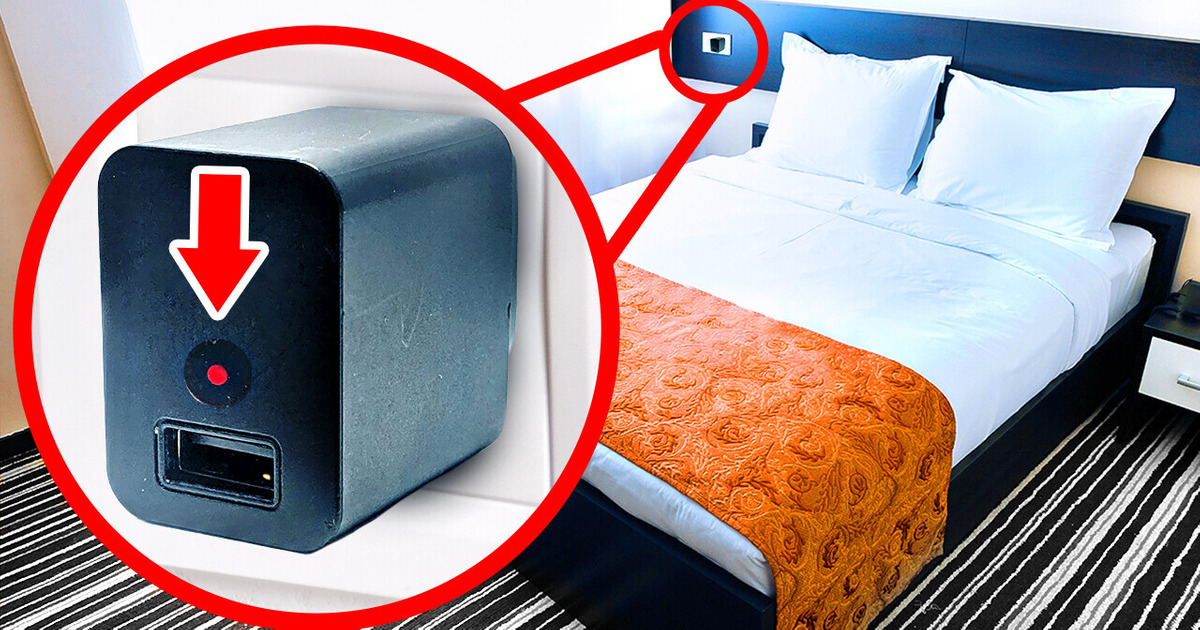
They’re watching you when you’re in the bedroom and when you’re in the bathroom. No, I’m not talking about your three-year-old kids. Uh, uh. One of the last things you think about when going on vacation is if the room you’re staying in has hidden cameras planted all over the place. For starters, look in the most obvious spots in your hotel room to see if you can find any hidden cameras.
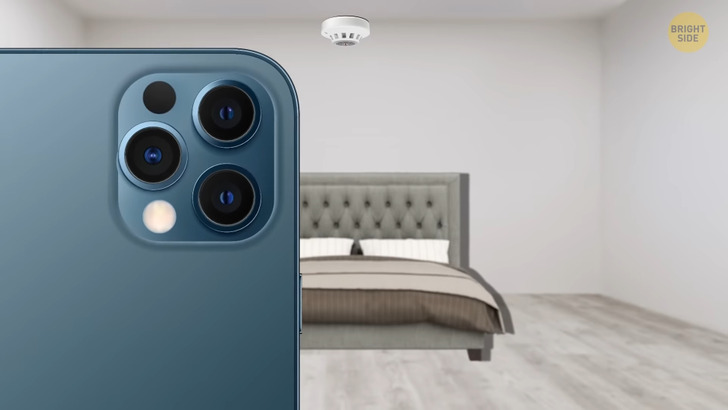
According to some experts, if you can’t find anything in plain sight, then using your smartphone is enough for a basic sweep. Every camera has a lens, and all lenses reflect light. So, a quick way to check for hidden cameras is to close all the curtains in the room and turn off the lights. Use your phone’s flashlight to point it at potential places or objects a hidden camera might be at. One of the apparent spots is the smoke detector on the ceiling.
Grab a chair and point the light straight at it and try to see if there’s any red or blue light reflected. You’ll have to do it slowly since the light needs to strike the lens at the correct angle for you to see a reflection. After you’re done, move on to other objects like the showerhead in the bathroom or an alarm clock and phone charger.
Keep in mind the positions of these objects. If the charger is placed where a surveillance camera could be, then investigate it and call the reception. Even a painting in the room can be a potential nest for a hidden camera. Other objects can be lamps, a hole in the wall, or somewhere inside the closet.
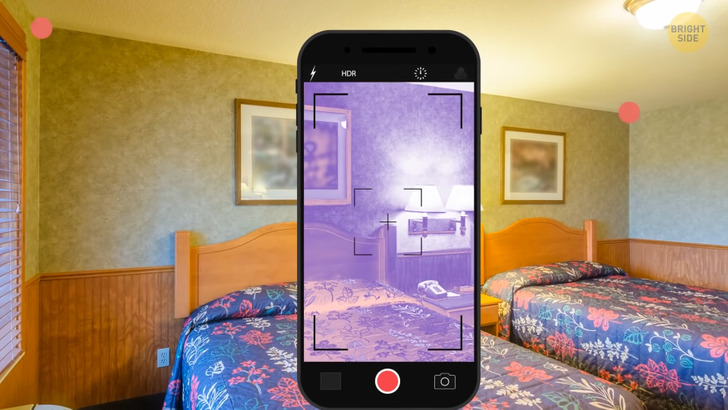
Another creepy place is the bathroom mirror. This one is tricky to spot, so you’ll have to be patient when inspecting it. You can also use your phone camera to spot surveillance cameras that spy on you at night. These secret cameras emit infrared lights that the human eye can’t see so that they can work at night.
You’ll also have to turn off the lights and put the camera in selfie mode. The rear-facing camera on most smartphones has an infrared filter, but the front one doesn’t. You can try pointing a TV remote at the front-facing camera and press on any of the buttons to see it yourself.
If you see a bright red light on your screen, that means it’s working. All you have to do is move your camera in the dark to see if you can find a bright light around. It’ll be good to do a second sweep to make sure you didn’t miss anything.
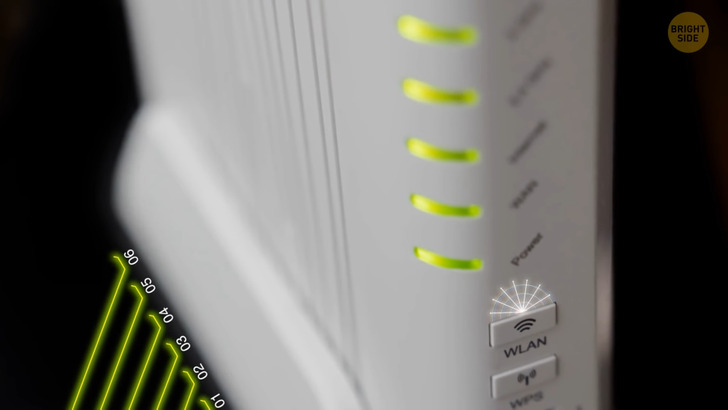
Another technique you can use is turning off the Wi-Fi when you enter the hotel room. Most of the cameras are hooked up to the Wi-Fi, so they won’t be functioning anymore. If you get a call from the reception saying that the Wi-Fi is down in the room, that might be a red flag.
There’s no reason for them to know if the Wi-Fi was purposefully turned off. It could mean that the cameras are on the local Wi-Fi. When you connect to your hotel room Wi-Fi for the first time, be careful about sharing your personal data.
Most networks will ask for your login credentials, such as your email. Some people can recreate a Wi-Fi login page that’s identical to that of the actual hotel, which can be deceiving. You might be connecting to a Wi-Fi router, but an email is all it takes for some people to know everything about you.
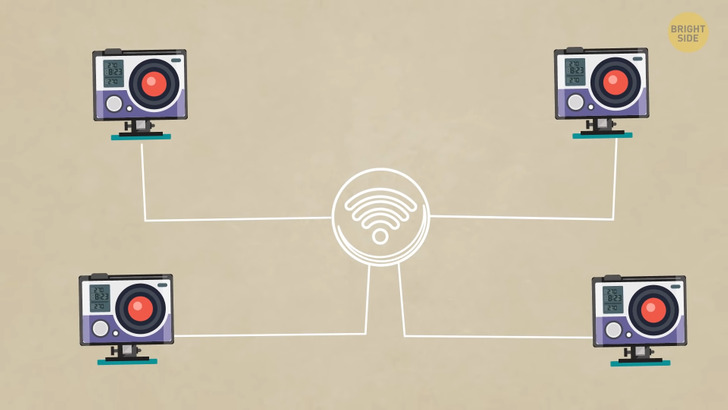
One of the best things you can do is download an app that shows you what devices are currently connected to the Wi-Fi you’re using. It can show what smartphone, laptop, smart TV, and in the worst case, hidden cameras are connected.
A radio frequency scanner can detect a wireless camera in the room even if it’s connected to its own Wi-Fi. It might be challenging, though, because of many wireless devices over-crowding the airwaves. You can pick up random signals even if you turn off all your devices and any wireless emitting signals.
Intrusion into your personal life can go so far as someone tapping your mobile phone or landline to listen to your conversations. One way of eavesdropping on people’s conversations is installing a microphone to a line that sends the audio wirelessly to a recorder from a remote transmitter.
Almost anyone can get their hands on such equipment since it’s not too expensive to buy and is available in many shops and online. If you notice strange sounds while talking on the phone like clicking, distant voices, or that sound similar to an old record playing, then chances are someone is listening to your phone calls. These sounds aren’t typical for a regular modern cell phone.
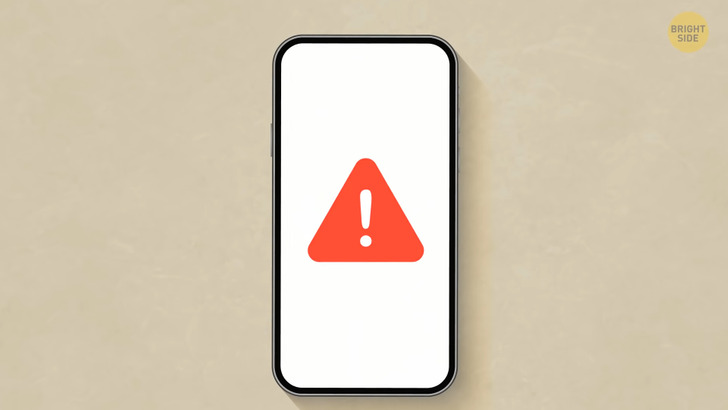
Most bugging software runs in the background of your phone without you knowing, which drains the battery. There can be many explanations for why your phone battery keeps draining, but some software living on your phone, viruses, and malware will likely be the reason.
You can also look out for unusual phone activity when you’re not using your gadget. If your notifications keep popping up, and you muted them, then maybe your phone is being bugged. In that case, they do not only have access to your phone calls but your actual phone. They can fish out any picture, video, file, and information you have without you knowing it.
If you try powering off your phone, and it takes way longer than usual, it can be another sign of someone tracking your phone. For the phone to completely shut down, it needs to log out of all the tasks and activities properly. If your phone is transferring data to someone remotely, it might be the reason for the delay in shutting down.
One of the biggest red flags is if you receive text messages that have random symbols and numbers. The ones who tap your phone use some illegal software which sometimes requires them to receive secret codes. Make sure the text messages aren’t something you subscribed to, otherwise contact someone who can help.

If you scroll through your apps and notice something that shouldn’t be there or something that looks fishy, the app could be a disguise for a spying app. Also, check for weird history in your browsers for stuff you didn’t search. You might notice your phone turning on and off randomly without you touching your phone.
And worst of all, they can turn on your phone camera anytime they want without you knowing. If you feel like your phone is tampered with, then you have to factory reset everything — it wipes out all the data, including files, settings, and apps.
The same risks apply to your laptop. Every now and then, we all click on something that seems legit even though it acts as an access point for spyware to enter our computer’s software. Draining battery, over-heating, and weird activity are telltale signs of your PC being infected. GPS trackers are the most common ways to track someone’s vehicle. It’s pretty simple to get the job done, but it’s very difficult to find the trackers since they’re usually planted deep inside the car.

If you ever get the spooky feeling that someone could be watching you while you drive or coincidentally see the same person everywhere you drive your car, then start searching for that tracker. The most common places are underneath the car or near the back wheels. But the person tracking your car is smart and knows what they’re doing — they’re not gonna let you find it that easily.
If you find nothing on the outside of your vehicle, then try looking on the inside. If you find something there, it’s a clear sign the person tracking you down broke into your car and planted the tracking device, or it could be someone you know who took a ride with you once and slipped it in without you knowing. Check behind the dashboard and within your car’s electronics to be sure.
Instead of ripping your car apart to find the tracker, you can buy a GPS bug detector. They work by finding electronic frequencies in your car’s proximity. They won’t block it from tracking you down, but they’ll help you find it. Before using it, turn off your smartphone or put it in airplane mode. This way, the frequencies won’t intercept with the tracking device. And if you feel like this isn’t working, try parking your car in a remote area where nothing is in sight. Even a remote garage would do. Well, anyone else feeling a little paranoid? Let’s see some hands.











